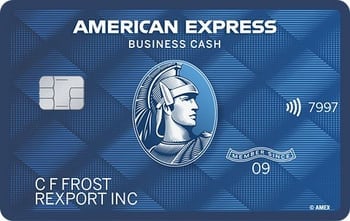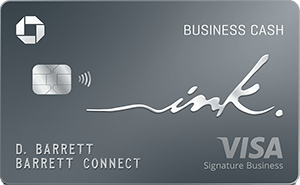Is Interest on a Business Credit Card Deductible?
Credit card interest accrued on business expenses is itself a tax-deductible business expense.
Many, or all, of the products featured on this page are from our advertising partners who compensate us when you take certain actions on our website or click to take an action on their website. However, this does not influence our evaluations. Our opinions are our own. Here is a list of our partners and here's how we make money.
You’ve been carrying a balance on your business credit card and racking up interest charges. Now it’s tax time. Can you write off those interest charges as a business expense?
The answer: Yes — but only if the interest was accrued on purchases that were business expenses.
Requirements for deducting credit card interest
Generally, you can deduct credit card interest if:
- The interest came from business expenses. The IRS defines business expenses as those that are “ordinary and necessary” for the operation of a business. These might include the costs of products you’re selling, storage expenses and other charges, for example.
- You are liable for the debt. You can’t deduct credit card interest accrued from business expenses if the purchase was made on someone else’s credit card, for instance.
At one time, credit card interest on personal expenses was deductible. But the Tax Reform Act of 1986 changed that; you can no longer deduct interest accrued on personal expenses. If you’ve made both personal and business purchases on your card, you can deduct only the interest from business expenses, according to the IRS.
Many business credit cards offer itemized statements and year-end account reports, which can make it easier to find out how much you’ve been billed in interest.
🤓 Nerdy Tip
You don’t necessarily need to have a business credit card to deduct qualifying interest charges. If you use a personal card exclusively for business expenses, for example, you can generally still deduct the interest charges. When to deduct credit card interest
Credit cards allow you to carry debt for months, which raises an important accounting question: Can you deduct interest you haven’t actually paid yet? The answer depends on which of the two main accounting methods you’re using:
- Cash accounting. With this method, you can generally only deduct interest you paid in the tax year. For example, if you were billed for interest in December, but paid it in January, you would wait until the following year to deduct it.
- Accrual accounting. With this method, you can generally deduct interest in the tax year you become liable for it, assuming certain requirements are met. For example, you could deduct qualifying interest charges you were billed for in December, even if you paid them in January.
Compare Cards
Article sources
NerdWallet writers are subject matter authorities who use primary,
trustworthy sources to inform their work, including peer-reviewed
studies, government websites, academic research and interviews with
industry experts. All content is fact-checked for accuracy, timeliness
and relevance. You can learn more about NerdWallet's high
standards for journalism by reading our
editorial guidelines.










